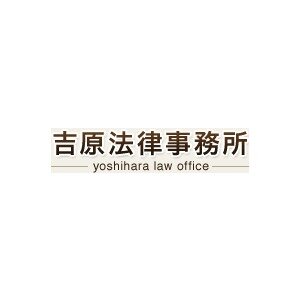Best Debt & Collection Lawyers in Sapporo
Share your needs with us, get contacted by law firms.
Free. Takes 2 min.
List of the best lawyers in Sapporo, Japan
About Debt & Collection Law in Sapporo, Japan
Debt and collection laws in Sapporo, as in the rest of Japan, are governed by a rigorous legal framework aimed at protecting both creditors' and debtors' rights. The collection of debts involves the pursuit of unpaid financial obligations and typically arises in contexts such as unpaid loans, credit card bills, or business transactions. The legal process ensures fair practices while prohibiting harassment or unfair methods of debt collection. It's essential for both creditors and debtors to be informed about their rights and obligations to navigate these matters effectively.
Why You May Need a Lawyer
Engaging with a lawyer knowledgeable about debt and collection laws can be crucial in several scenarios. Individuals may require legal assistance when disputing a debt, protecting themselves from unfair collection practices, or negotiating repayment terms. Creditors, on the other hand, might need legal help to pursue recovery through lawful means or engage in litigation if necessary. Employing a lawyer can provide clarity, representation, and a strategic approach in handling complex financial disputes.
Local Laws Overview
In Sapporo, the key legal framework governing debt and collection includes regulations set forth by the Civil Code and the Money Lending Business Act. Local ordinances also play a role in ensuring ethical collection practices. Collectors are prohibited from aggressive or threatening behaviors, and debtors have protections such as the right to dispute debts. It's crucial for debtors to be aware of prescription periods, typically three years for consumer debt, within which creditors can legally enforce repayment.
Frequently Asked Questions
How can I dispute a debt claim in Sapporo?
It's recommended to start by contacting the creditor directly to discuss the issue. If this doesn’t resolve the problem, you can pursue formal dispute processes, possibly involving mediation or legal assistance.
What actions are considered unfair collection practices?
Harassment, threatening communication, misleading statements, and public shaming are prohibited under Japanese law. Creditors must adhere to ethical collection methods.
What should I do if I receive a court notice for debt collection?
Promptly seek legal advice to assess your situation and possible defenses or negotiate a settlement with your creditor to avoid further legal complications.
Can creditors garnish my wages in Sapporo?
Yes, but only if they have obtained a court judgment allowing them to do so. There are legal procedures and limitations on the portion of wages that can be garnished.
How long can a creditor attempt to collect a debt?
Generally, the statute of limitations for consumer debt is three years, starting from the date of the last payment or acknowledgment of the debt.
What rights do I have as a debtor in Sapporo?
Debtors are entitled to protection from abusive collection practices, accurate information about debts, and may challenge claims they believe are incorrect or unjust.
Is bankruptcy an option for resolving unmanageable debt?
Yes, personal bankruptcy is an option but should be considered as a last resort due to the significant impact on your financial standing and credit history.
How can businesses pursue debt recovery legally?
Businesses should ensure compliance with legal collection procedures, potentially seeking restitution through civil litigation if amicable resolution methods fail.
What is the role of debt collection agencies in Sapporo?
These agencies can be hired by creditors to recover debts, but they must operate within the legal boundaries set out by Japanese laws to ensure fair practices.
Can a lawyer help me negotiate with creditors?
Absolutely, lawyers can facilitate negotiations for a payment plan or settlement, potentially preventing litigation and achieving a mutually agreeable resolution.
Additional Resources
For further assistance, you can contact governmental bodies such as the Japan Legal Support Center, or organizations like the Sapporo Bar Association, which can provide guidance and recommend experienced lawyers. The Consumer Affairs Center also offers advice and mediation for consumer conflicts, including debt issues.
Next Steps
If you require legal assistance, consider scheduling a consultation with a lawyer specializing in debt and collection law to discuss your situation. Prepare any relevant documentation and a list of questions or concerns you have. It's also advisable to research and understand your options, including mediation or legal action, to determine the best course of action for your circumstances.
Lawzana helps you find the best lawyers and law firms in Sapporo through a curated and pre-screened list of qualified legal professionals. Our platform offers rankings and detailed profiles of attorneys and law firms, allowing you to compare based on practice areas, including Debt & Collection, experience, and client feedback.
Each profile includes a description of the firm's areas of practice, client reviews, team members and partners, year of establishment, spoken languages, office locations, contact information, social media presence, and any published articles or resources. Most firms on our platform speak English and are experienced in both local and international legal matters.
Get a quote from top-rated law firms in Sapporo, Japan — quickly, securely, and without unnecessary hassle.
Disclaimer:
The information provided on this page is for general informational purposes only and does not constitute legal advice. While we strive to ensure the accuracy and relevance of the content, legal information may change over time, and interpretations of the law can vary. You should always consult with a qualified legal professional for advice specific to your situation.
We disclaim all liability for actions taken or not taken based on the content of this page. If you believe any information is incorrect or outdated, please contact us, and we will review and update it where appropriate.










